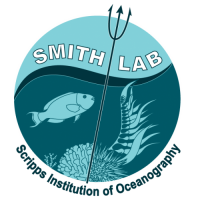Global microbialization of coral reefs
Abstract: Microbialization refers to the observed shift in ecosystem trophic structure towards higher microbial biomass and energy use. On coral reefs, the proximal causes of microbialization are overfishing and eutrophication, both of which facilitate enhanced growth of fleshy algae, conferring a competitive advantage over calcifying corals and coralline algae. The proposed mechanism for this competitive advantage is the DDAM positive feedback loop (dissolved organic carbon (DOC), disease, algae, microorganism), where DOC released by ungrazed fleshy algae supports copiotrophic, potentially pathogenic bacterial communities, ultimately harming corals and maintaining algal competitive dominance. Using an unprecedented data set of >400 samples from 60 coral reef sites, we show that the central DDAM predictions are consistent across three ocean basins. Reef algal cover is positively correlated with lower concentrations of DOC and higher microbial abundances. On turf and fleshy macroalgal-rich reefs, higher relative abundances of copiotrophic microbial taxa were identified. These microbial communities shift their metabolic potential for carbohydrate degradation from the more energy efficient Embden–Meyerhof–Parnas pathway on coral-dominated reefs to the less efficient Entner–Doudoroff and pentose phosphate pathways on algal-dominated reefs. This ‘yield-to-power’ switch by microorganism directly threatens reefs via increased hypoxia and greater CO2 release from the microbial respiration of DOC.


